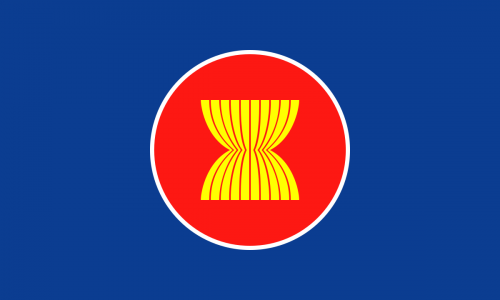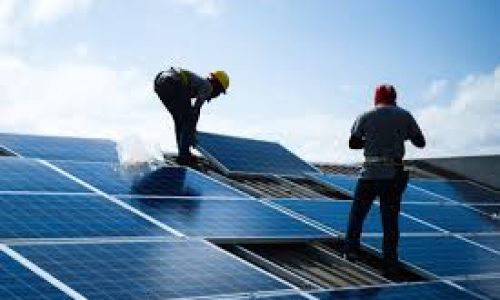President Joko “Jokowi” Widodo, or Jokowi, has approved the revision of Minister of Energy and Mineral Resources Regulation No. 26/2021 regarding the development of rooftop solar power plants (PLTS) in early January 2024. Currently, the revised policy has entered the legislative stage and has been approved by Minister of Energy and Mineral Resources Arifin Tasrif.
“President Jokowi has approved the revision of Minister of Energy and Mineral Resources Regulation No. 26/2021. Now it’s just the legislative process,” Andriah Feby Misna, Director of New Renewable Energy at ESDM, said in Jakarta, on Monday, February 5, 2024.
The revision of Ministerial Regulation No. 26/2021 on Rooftop PLTS connected to the Electricity Network for Public Interest IUPTL Holders is expected to be a middle ground. So far, there have been interests from PLN with the industry and the community who are initiating to increase future solar panel installations.
Several attempts to improve this policy have been stagnant due to concerns about the state budget (APBN) burden. Another issue is the excess electricity supply that is currently still borne by PT Perusahaan Listrik Negara or PLN.
Feby later mentioned that the differences in perspectives between ministries and institutions can be overcome with the provisions outlined in this solar panel policy revision.
She said that the fiscal authorities are willing to divert the APBN as compensation or subsidies if there is an increase in the basic cost of electricity supply (BPP) in certain systems after a large-scale adoption of rooftop PLTS among the community later on. “If, for example, there is an increase in BPP from PLN, it will be borne by the state in accordance with the regulations,” she said.
Meanwhile, she emphasized that her ministry decided to remove the clause regarding electricity export intended as a reduction in electricity bills for consumers who install rooftop PLTS. This maneuver is mentioned to maintain the financial burden of the state-owned electricity company amidst the wide oversupply of electricity at present.
Additionally, the Ministry of Energy and Mineral Resources is said to abolish the installed capacity limit of rooftop PLTS among the community to accelerate investment in the power generation sector. The installed capacity limit formula will be replaced with a development quota scheme.
“The installed capacity will be used for the consumers themselves so it is expected that consumers will install according to their needs. Later, it will be adjusted to the quota, PLN will issue its quota,” Feby said.
As previously reported, the government’s maneuver to remove the electricity export mechanism in the utilization of rooftop solar power plants (PLTS) is considered contradictory to the massive energy transition commitment in the community.
Chairperson of the Indonesian Solar Energy Association (AESI) Fabby Tumiwa said the government’s proposal would increase the investment and operational costs of rooftop PLTS in residential and small business markets. Consequently, the installation investment in solar panels becomes unattractive for residential or small and medium-sized businesses. Through the elimination of the electricity export scheme, customers with excess capacity from installing PLTS can no longer sell surplus power to PLN as a reduction in their electricity bills.
“The rooftop PLTS for residential customers and small businesses become economically unviable because customers with low voltage consume more electricity at night than during the day,” said Fabby on Monday.
Based on AESI’s calculations, the minimum installation of PLTS for residential customers and small businesses is in the range of 1.5 kilowatts peak (kWp) to 2 kWp. The lower limit of PLTS installation produces power ranging from 6 kilowatt hours (kWh) to 8 kWh. Typically, the effective utilization of rooftop PLTS in Indonesia is only around 40 percent. The rest of the power generated must be exported to the PLN grid. These calculations make the installation of PLTS for residential customers and small businesses unattractive. Moreover, access to resell surplus power to the PLN grid is planned to be closed.
“The absence of net-metering will kill the potential of rooftop PLTS in residential and social consumers,” said Fabby. Additionally, he said, the potential installation of rooftop PLTS for customers with power usage ranging from 2,200 volt-amperes (VA) to 6,600 VA and above is quite promising.
Referring to the Ministry of Energy and Mineral Resources report, the total number of customers in this tariff group reaches 5.45 million. The average electricity consumption of customers from 2,200 VA to 6,600 VA and above ranges from 283 kWh to 1,359 kWh per customer per month. The number of household customers in this tariff group accounts for almost 30.2 percent of the total beneficiaries of electricity compensation.
“Actually, they have the potential to install rooftop PLTS, with the absence of net-metering, it’s difficult for them, very few might want to,” he said.









